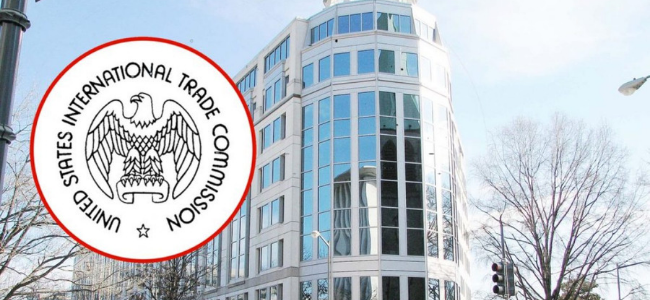U.S. Grains Council (USGC) Director of Trade Policy and Biotechnology Floyd Gaibler testified Tuesday before the U.S. Trade Representative’s (USTR’s) Trade Policy Committee on the proposed U.S.-United Kingdom trade negotiations, offering input on grain industry priorities as USTR develops its approach to the coming talks.
With the UK set to begin transitioning out of the European Union in March, the U.S. government is looking to begin negotiations in relatively short order to take advantage of an interim period during which the UK continues to follow EU law while developing its own, new policies. This could offer the opportunity to develop new agreements between the UK and the United States that move past some of the challenges the U.S. agriculture sector has faced in trade with the EU.
“Exports are vital to global economic development and to U.S. agriculture’s profitability,” Gaibler said. “A trade agreement between the U.S. and the UK will provide opportunities to expand free and fair trade, strengthen our economic and strategic relationship between our two countries and help promote economic growth in the European region.”
The UK has a population of 66 million people and represents the fifth largest global economy, but produces less than 60 percent of its food needs, presenting a potentially lucrative market for U.S. agriculture in general and feed grains in particular.
The U.S. already sells UK buyers varying quantities of corn, sorghum, barley, distiller’s dried grains with solubles (DDGS), corn gluten feed and meal and ethanol. As the UK exits from the EU, there is a greater opportunity for regulatory alignment between the two counties in a future trade deal.
However, there is some concern from the United States about how much the UK will continue to align its trade policies with the EU once it separates from the larger group of countries. The EU limits the entry of lower-priced grains from non-EU countries through quotas and a reference price system based on U.S. exchange prices and transportation costs. In his testimony, Gaibler emphasized that the U.S. government should demand the UK eliminate the price reference system in the upcoming trade talks and commit to zero duties on U.S. corn, barley, sorghum, DDGS and co-products.
Similarly, the Council is recommending no UK tariffs on ethanol for fuel use and elimination of the EU anti-dumping duty on U.S. ethanol exports that has been in force since 2012.
Regarding biotechnology and new plant breeding techniques, Gaibler said the UK should establish regulatory autonomy from the EU and endorsed the adoption of synchronous biotech provisions included in the U.S.-Mexico-Canada Agreement (USMCA) in a new U.S.-UK pact. Those provisions provide procedures for parties to follow when a low-level presence (LLP) of a biotech material is detected in a shipment of agricultural commodities or food products.
“As the UK transitions to a synchronous approval process, the most effective way to reduce the risk of trade disruptions and enable farmers and related industry sectors to access the most advanced technologies within a reasonable time is to eliminate the gap in product approvals through an agreement on mutual recognition of safety determinations of biotech-enhanced commodities for use a food, feed or further processing,” Gaibler said.
Likewise, the Council recommends the USTR advocate for the UK to establish its own independent policies regarding pesticide regulation and sanitary and phytosanitary measures, built upon and going beyond the World Trade Organization’s (WTO’s) agreement.
Other recommendations include supporting a technical barriers to trade (TBT) chapter that combines those provisions followed by the WTO and established in the USMCA agreement to facilitate trade by enhancing transparency, promoting greater regulatory cooperation, good regulatory practices and encouraging exchange of information between the UK and the U.S.
The Council also advocates for inclusion of trade facilitation measures to help goods cross borders quickly and transparently by requiring customs authorities to treat goods fairly and reduce conflicts of interest in customs administration.
To read the testimony in full, click here.
About The U.S. Grains Council
The U.S. Grains Council develops export markets for U.S. barley, corn, sorghum and related products including distiller’s dried grains with solubles (DDGS) and ethanol. With full-time presence in 28 locations, the Council operates programs in more than 50 countries and the European Union. The Council believes exports are vital to global economic development and to U.S. agriculture’s profitability. Detailed information about the Council and its programs is online at www.grains.org.

